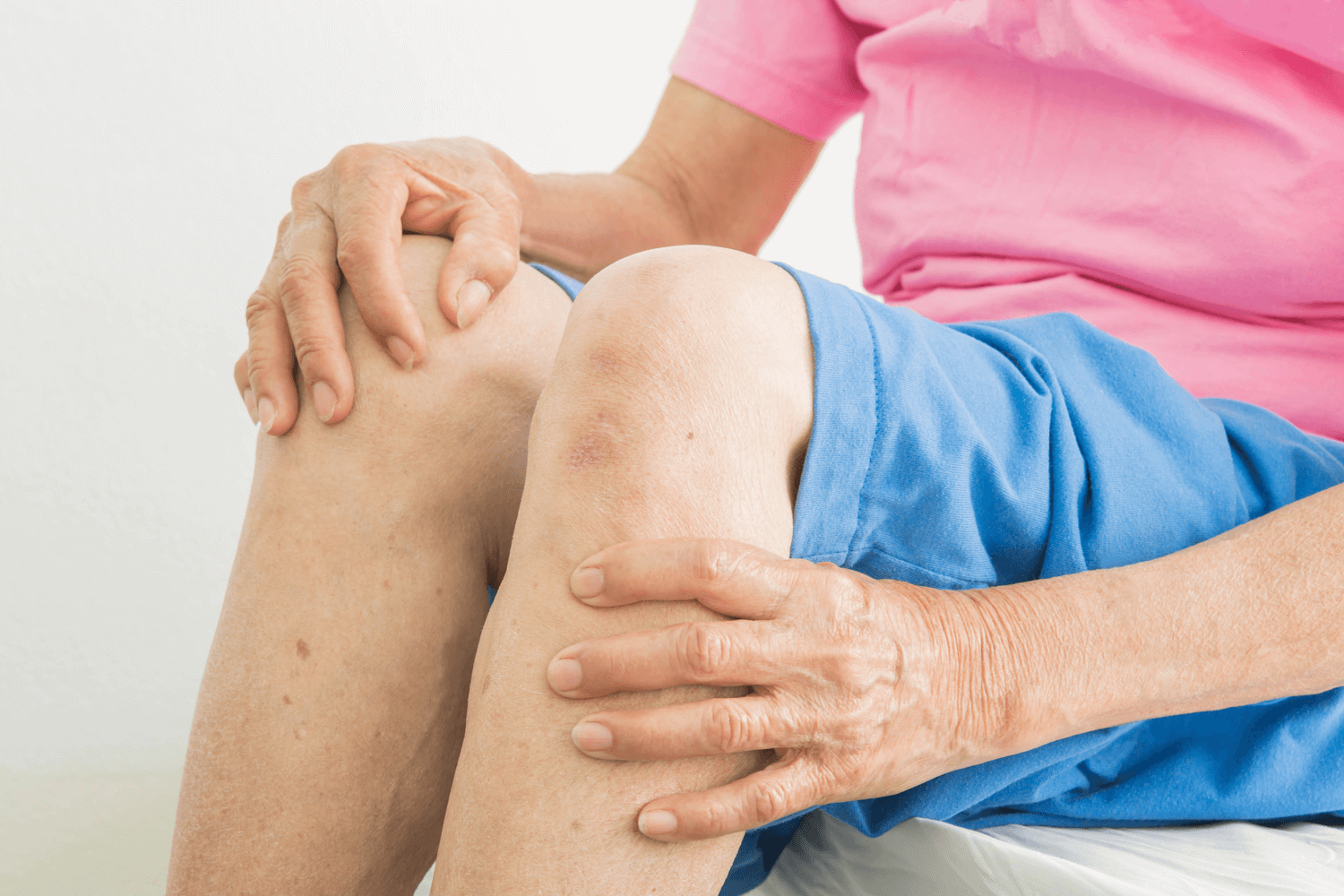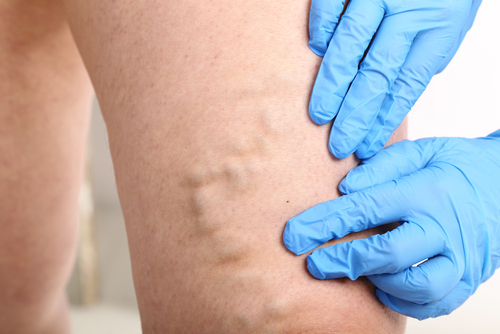How a Venous Ablation Works
What does vein ablation mean? Well, ablation is the surgical removal or destruction of body tissue. So, vein ablation destroys part of the diseased vein.
Venous ablation therapy uses a tiny, plastic-covered wire that conducts radiofrequency (RF) energy to collapse and close the diseased vein.
After treatment, the treated vein will close off and dissipate in time. When a vascular surgeon performs a vein ablation procedure, they specifically target veins connected to varicose veins, so as the main vein disappears, the connected veins will also disappear. Once the diseased veins are totally gone, the blood flow will be redirected through healthy veins.
How a Venous Ablation Works
What does vein ablation mean? Well, ablation is the surgical removal or destruction of body tissue. So, vein ablation destroys part of the diseased vein.
Venous ablation therapy uses a tiny, plastic-covered wire that conducts radiofrequency (RF) energy to collapse and close the diseased vein.
After treatment, the treated vein will close off and dissipate in time. When a vascular surgeon performs a vein ablation procedure, they specifically target veins connected to varicose veins, so as the main vein disappears, the connected veins will also disappear. Once the diseased veins are totally gone, the blood flow will be redirected through healthy veins.
Endovenous Ablation for Varicose Veins
Endovenous ablation is a minimally invasive way to fix varicose veins and vein problems without big surgery. Instead of making large cuts, doctors use a thin catheter or needle to reach the affected vein. Then, they use either laser or radio waves through the catheter or needle to heat and seal the vein tight, allowing blood to reroute to other healthy veins naturally.
Benefits of Endovenous Ablation:
- Minimally invasive: Unlike traditional vein surgery, endovenous ablation requires only small incisions and typically results in less pain and faster recovery.
- Effective: Endovenous ablation has been shown to effectively close off diseased veins, improving blood flow and reducing symptoms associated with venous insufficiency.
- Quick recovery: Most patients can resume normal activities shortly after the procedure, with minimal downtime compared to traditional surgery.
Is Endovenous Ablation Right for You?
If you’re experiencing symptoms of venous insufficiency or have been diagnosed with varicose veins, an endovenous ablation could be a smart choice. Talk to our experienced vascular surgeons to figure out what’s the best fit for you.
What To Expect During Treatment
During a venous ablation appointment, your vascular surgeon will perform a series of steps to treat problematic veins, typically those affected by varicose veins or chronic venous insufficiency. Here’s what you can generally expect:
- Pre-procedure consultation: The doctor will review your medical history, symptoms, and any prior treatments. This is also when you can discuss your expectations and any concerns about the procedure. This will happen before the day of your actual procedure but may be reviewed briefly once again.
- Ultrasound examination: Before the procedure, an ultrasound is performed one last time. This imaging helps the doctor visualize the vein to be treated and plan the procedure by mapping out the vein’s path.
- Preparation: The area around the vein will be cleaned, and a sterile environment will be maintained to prevent infection. Medical drapes will be placed to cover your body and face to keep the area sterile. You may be given a local anesthetic to numb the area, ensuring comfort during the procedure. The anesthetic is injected into the vein that will be removed. During this process, you will feel pressure, but it should not hurt.
- Catheter insertion: The doctor will make a small incision near the affected vein and insert a thin catheter into the vein under ultrasound guidance. The location of the incision is at an inconspicuous point on the leg.
- Ablation process: Once the catheter is in place, energy (either laser or radiofrequency) will be delivered through it to heat the vein, causing it to collapse and seal shut. This process reroutes blood to healthier veins, improving circulation. Ablation is very quick, and the majority of your appointment will be spent in preparation!
- Post-procedure: After the ablation, the catheter is removed, and the incision is covered with a small bandage. Your doctor will also place a compression garment and medical wrap on your leg. The procedure typically takes about 30 minutes to an hour, depending on the number of veins treated and their complexity.
- Recovery: You will be encouraged to walk shortly after the procedure to promote blood flow. Most patients can return to normal activities the same day, though you may need to wear compression stockings for a few weeks to support healing. You should not remove the compression garments for 48 hours. This means no showering! Bruising may not happen at all, but if it does, a little is within the normal aspects of recovery. The first few days, you will not feel pain as the anesthetic will still be in the treated veins. After the first few days, you may feel a dull pain, so don’t be alarmed.
- Follow-up: A follow-up appointment is usually scheduled to assess the treated vein’s closure and ensure proper healing. Additional ultrasounds may be performed to confirm the success of the ablation and check for any complications.
Vein Ablation Recovery
Vein ablation is a minimally invasive procedure, but it does require some time for your legs to heal completely. Typically, you can expect to make a full recovery in about four weeks’ time.
After your procedure, you will be given instructions for how to care for your legs as you recover. In general, you should also take some time to put your legs up to prevent or reduce swelling. Also, to help your legs heal, we recommend compression stockings to wear. These stockings will reduce swelling, which can accelerate healing.
Keep the incision site clean and dry for the next few days after your procedure, in order to prevent infection.
What to Avoid
After Vein Ablation
After Vein Ablation
You should also avoid taking hot baths or swimming in a hot tub while the incision heals. Generally, you should avoid submerging your treated leg for about 2-4 weeks after your treatment. Also, you should avoid any heavy exercise for the next 2 weeks to avoid pain. This includes any heavy lifting, running, jogging, or intense sports.
What Else Should I Know About Venous Ablation Aftercare?
1. Take time to rest
Even though vein ablation is less intense than traditional vein ligation, or vein stripping surgery, your body will need time to heal.
2. Ease back into normal activity
Don’t jump back into your full activity levels at first. Doing intense exercise like running or cycling could force blood flow back through the treated vein, and cause the treatment to fail.
3. Don’t bathe for the next few days
Showers can be resumed the morning after the procedure. Avoid any type of leg submerged such as tub baths, whirlpools, or hot tubs for 2-4 weeks.
4. Use ice packs
To further reduce swelling and bruising after your surgery, you should apply an ice pack or a cold compress to the treated area regularly. If you use an ice pack, wrap it in a towel and apply for a maximum of 20 minutes, repeated a few times every day.
5. Be prepared for sleep challenges
Trying to get to sleep after surgery can be a challenge. Your doctor may recommend that you sleep on your back with your leg or legs elevated to aid the healing process.
6. Expect the pain to get worse before it fades
Many patients experience the worst post-procedure pain about 8-10 days after the treatment. But generally, any pain will fade after about day 14.
7. Take care of your bruises
Most patients will experience bruising after vein surgery. Bruises may appear as blue, black, or greenish spots around the treated veins. Elevating your legs, applying ice packs, and getting plenty of rest will help your bruises fade within a couple of weeks.
8. Talk to your doctor about blood thinners
Before this procedure, you may need to stop taking blood thinners in order to prevent excessive bleeding or increased recovery time.
9. Leave your incision dressings alone
After your procedure, your doctor will use bandage wraps to absorb any remaining numbing solution. These should be left on until the morning after the procedure. If any incisions are still weeping after taking off the bandage, a light bandaid can be used. If incisions are dry, leave them unbandaged.
10. Avoid sitting down too much or too little
You should avoid sitting or standing for long periods of time after your procedure. You should especially be aware of this for at least the first 2 months after your procedure.
FAQs About Venous Ablation in Lapeer and Flint, MI
FAQs About Venous Ablation in Lapeer & Flint, MI
Is Venous Ablation Safe?
Venous ablation is a safe and reliable treatment for varicose veins and other vein disease-related symptoms.
Does Vein Ablation Help Circulation?
How Would Removing Veins Improve Circulation?
Conditions such as Varicose veins stem from blood pooling in the veins. Varicose veins and spider veins are superficial or right underneath the surface of our skin. Since the blood is not flowing properly through these veins, closing and finding healthy alternate routes is best for blood flow.
How Long Does Vein Ablation Take to Heal?
Because vein ablation is a minimally invasive procedure, recovery times are relatively short. That said, your body does need time to recover from the procedure. Most patients see a full recovery in about four weeks.
How Much Does Venous Ablation Cost?
Without insurance coverage, venous ablation can cost anywhere from $2000-$3000.
Will My Insurance Cover the Cost of Vein Ablation?
Radiofrequency Ablation is considered a medically necessary procedure and as such is covered by most insurance plans, which will significantly decrease your out-of-pocket expenses.
What Are The Side Effects of Vein Ablation?
Despite the minimally invasive nature of this treatment, there are a few risks associated with this procedure. Risks and complications of radiofrequency ablation include:
- Infection
- Bleeding
- Bruising
- Inflammation
- Swelling
- Blood Clots
- Soreness
- Nerve Damage
Many of these side effects are minor and are easy enough to take care of with at-home self-care procedures.
Signs of Blood Clot After Vein Ablation
It’s important to be aware of any potential effects after a vein ablation procedure. If you notice redness, warmth, tenderness, or swelling around the treatment area, these symptoms could be warning signs of a blood clot. While these symptoms may also be a part of the side effects of this procedure, it’s recommended to contact your doctor for guidance.
You should seek emergency medical care immediately if you experience any of the following symptoms after your procedure:
- Loss of consciousness
- Severe trouble breathing
- Coughing up blood
- Sudden chest pain
- Sudden shortness of breath
- Pain that does not get better after taking medication
- Bleeding at the incision site
- Numbness in your leg, foot, or toes
You should also contact a doctor, or seek medical attention if you notice signs of infection such as:
- Increased swelling
- Increased pain
- Redness
- Fever
- Pus draining from the incision site
- Red streaks around the incision site
Schedule a Venous Ablation Consultation in Flint & Lapeer, MI
At VeinSolutions™ Flint, our experienced vascular surgeons perform venous ablation treatments in conjunction with venous ultrasounds for the most accurate and effective treatments. If you’re considering vein ablation surgery, schedule a consultation with the vein experts at VeinSolutions™ Flint to find out if this treatment is right for you.


